Find the Best Massage Near Me to Revitalize Body and Mind
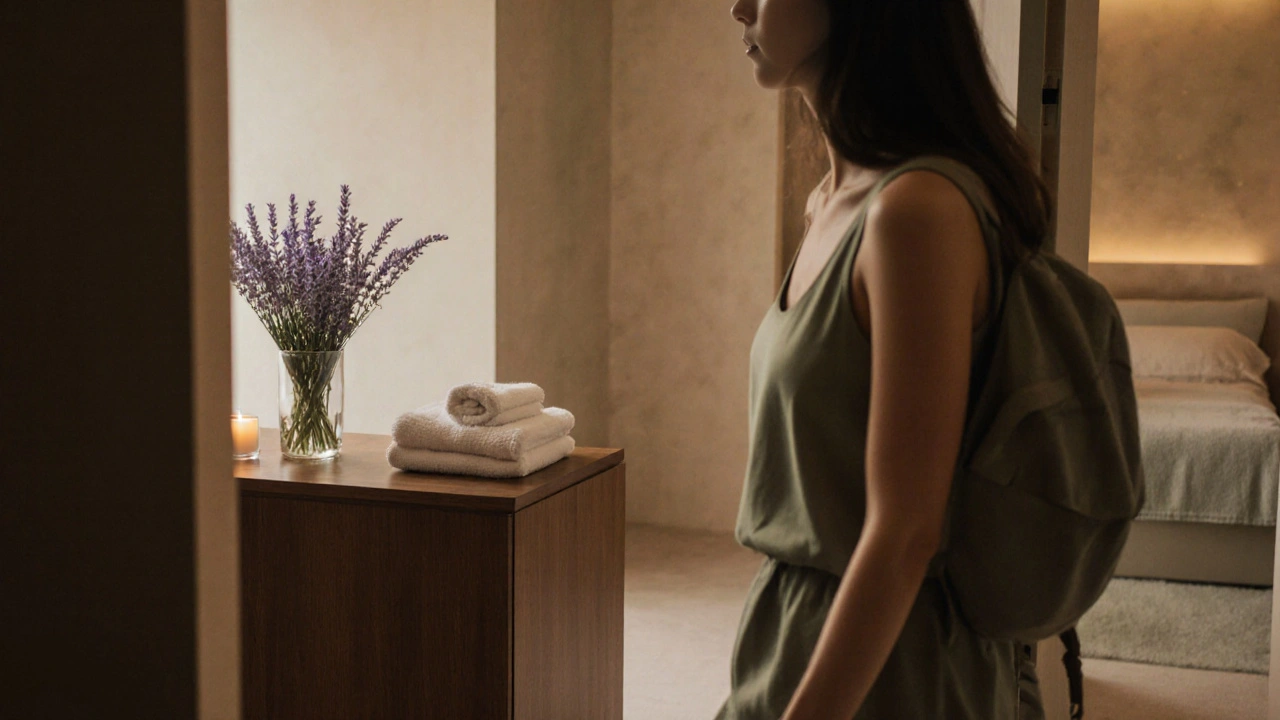
Stressed out, sore muscles, or just craving a mental reset? A good massage can be the shortcut to feeling refreshed without a vacation. Yet the market is crowded, and figuring out which local studio truly delivers results feels overwhelming. This guide walks you through the exact steps to spot the best massage near me, understand the most common techniques, and set up a hassle‑free booking routine.
What Makes a Massage Worth Your Time?
When you walk into a clinic, the first thing you notice is the atmosphere, the therapist’s professionalism, and the range of services. Those three pillars - environment, expertise, and modality - are the real signals that a place can revitalize both body and mind. Below is a quick mental checklist to keep handy during your hunt:
- Clean, calm space with soothing lighting and a pleasant scent.
- Licensed therapists with clear specialty credentials.
- Clear description of each massage type and its intended benefits.
- Transparent pricing and easy cancellation policy.
- Positive client reviews that mention specific outcomes (e.g., reduced back pain, lower anxiety).
Understanding Popular Massage Types
Each massage modality targets a different set of needs. Knowing the basics helps you match the technique to your own goals.
Swedish Massage is a gentle, full‑body approach that uses long strokes, kneading, and circular motions to promote relaxation and improve circulation.
Deep Tissue Massage focuses on the deeper layers of muscle and fascia, applying slower pressure to release chronic tension.
Hot Stone Massage incorporates smooth, heated stones to warm up tight muscles, making it easier to stretch and relax.
Aromatherapy Massage blends essential oils with light to moderate pressure, adding a sensory dimension that can lift mood and ease stress.
Sports Massage is designed for athletes, using targeted techniques to improve performance, prevent injury, and speed up recovery.
Lymphatic Drainage Massage uses gentle, rhythmic strokes to stimulate the lymphatic system, reducing swelling and boosting immunity.
Thai Massage combines assisted stretching with pressure along energy lines, often performed on a mat on the floor.
Foot Massage concentrates on reflex points in the feet, offering quick relaxation and improved systemic balance.
Side‑by‑Side Comparison of Core Modalities
| Massage Type | Typical Pressure | Main Benefits | Best For |
|---|---|---|---|
| Swedish | Light‑to‑moderate | Relaxation, circulation boost | First‑timers, stress relief |
| Deep Tissue | Firm, focused | Chronic muscle pain, injury rehab | Athletes, desk‑workers |
| Hot Stone | Moderate + heat | Muscle loosening, deep relaxation | People with stiff muscles |
| Aromatherapy | Light‑to‑moderate | Mood uplift, anxiety reduction | Those who love scents |
| Sports | Varies - from light to intense | Performance enhancement, injury prevention | Active individuals, athletes |
| Lymphatic Drainage | Very light | Reduced swelling, detox | Post‑surgery, immune support |
| Thai | Moderate stretch + pressure | Flexibility, energy flow | Yoga lovers, flexibility seekers |
| Foot | Light‑to‑moderate on soles | Quick stress relief, reflex benefits | Busy professionals, travelers |
How to Spot the Top Local Studios
Now that you know which technique aligns with your goals, it’s time to narrow down actual businesses. Follow these practical steps:
- Search locally and filter by reviews. Use platforms like Google Maps, Yelp, or local health directories. Look for a rating of 4.5+ and read comments that mention specific outcomes you care about.
- Check therapist credentials. In Australia, massage therapists must be registered with the Australian Association of Massage Therapists (AAMT) or hold a recognized diploma. Many studios list each therapist’s specialty on their ‘Meet the Team’ page.
- Analyze the service menu. A reputable clinic will clearly differentiate each massage type, list session lengths (usually 60, 90, 120 minutes), and outline what you can expect during the session.
- Price transparency. Hidden fees are a red flag. Typical Melbourne rates in 2025 range from $90 for a 60‑minute Swedish session to $150 for a specialty hot stone or deep tissue package.
- Trial session policy. The best places offer a short introductory massage (30 minutes) at a reduced rate, allowing you to gauge comfort and technique before committing to a longer treatment.
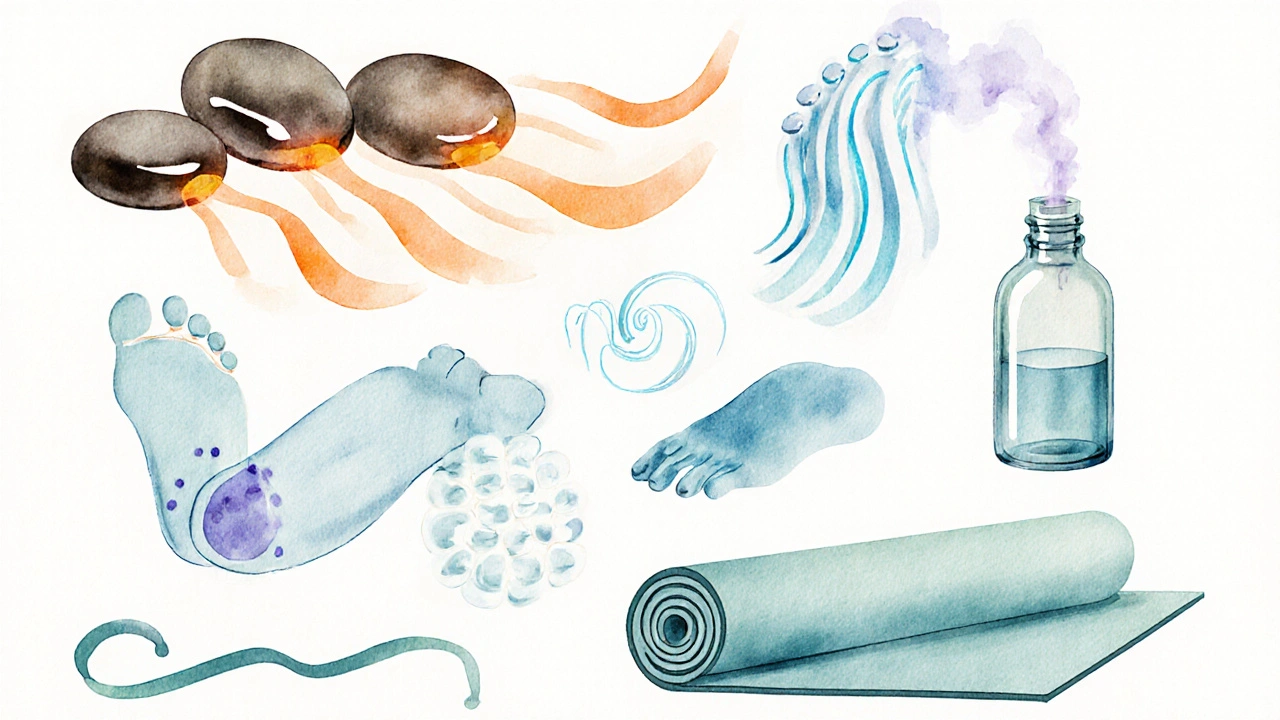
Creating Your Personal Booking Checklist
Before you pick up the phone or hit ‘book now’, run through this simple checklist. It saves you from miscommunication and ensures you get the exact experience you’re after.
- Identify your primary goal (relaxation, pain relief, performance). Choose the matching modality from the table above.
- Pick a therapist who lists that modality as a specialty.
- Confirm session length and price. Ask if there’s a package discount for repeated visits.
- Verify hygiene standards - fresh linens, clean treatment rooms, and hand‑sanitizing practices are non‑negotiable.
- Ask about after‑care advice (stretching, hydration, follow‑up sessions).
- Note the cancellation window. Most clinics require 24‑hour notice to avoid a fee.
Real‑World Examples from Melbourne (2025)
Below are three studios that consistently meet the checklist criteria. They illustrate how the same city can offer diverse experiences tailored to different needs.
- Tranquil Touch Wellness - Located in Southbank, this boutique offers a calm ambience with a strong focus on aromatherapy and Swedish massages. Clients rave about the soothing lavender oil blend that helps quiet the mind. Prices start at $95 for a 60‑minute session.
- Peak Performance Massage - Based in Fitzroy, the team specializes in sports and deep tissue work. Their therapists hold sports science certifications and provide post‑workout stretch routines. A 90‑minute deep tissue package is $140.
- Stone & Flow Studio - In St Kilda, they combine hot stone and Thai techniques for a hybrid experience that releases tight muscles while improving flexibility. The 75‑minute signature treatment costs $130.
All three have AAMT‑registered therapists, clear online menus, and a transparent cancellation policy.
Common Pitfalls and How to Avoid Them
Even with a solid checklist, a few traps can sneak in:
- Over‑booking cheap “massagers”. Very low prices often mean unlicensed practitioners or rushed sessions. Stick to the market range outlined earlier.
- Skipping the therapist‑client fit. A therapist’s style (firm vs. gentle) varies widely. If the first session feels uncomfortable, don’t hesitate to request a different practitioner.
- Ignoring post‑session care. Hydration, light stretching, and a brief rest period amplify the benefits. Ask your therapist for personalized after‑care tips.
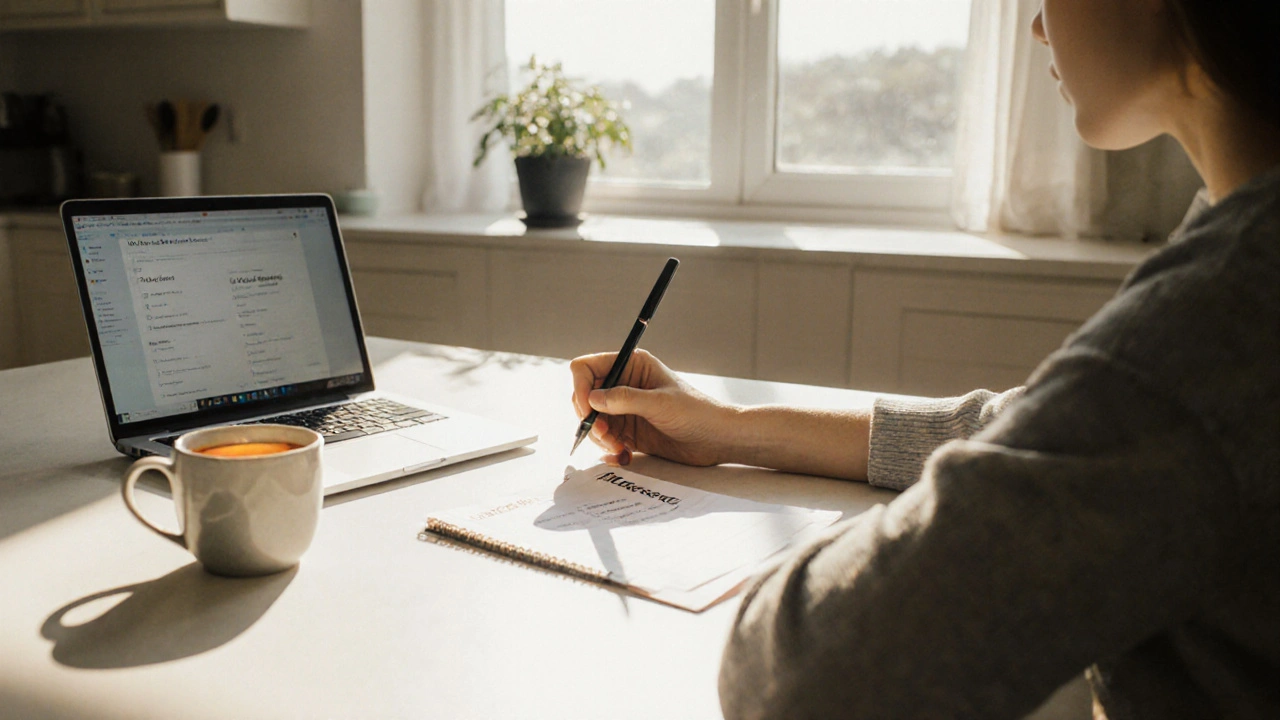
Frequently Asked Questions
Frequently Asked Questions
How often should I get a massage for optimal health?
For general wellness, a 60‑minute session every 3‑4 weeks works well. If you have chronic pain or are training for a sport, weekly or bi‑weekly deep tissue or sports massages can speed recovery and improve performance.
Are massage therapists in Melbourne required to be licensed?
Yes. In Victoria, therapists must hold a recognized diploma and be registered with the Australian Association of Massage Therapists (AAMT) or a similar professional body. This registration ensures they meet hygiene and safety standards.
What’s the difference between a Swedish and a Deep Tissue massage?
Swedish massage uses lighter, flowing strokes aimed at relaxation and circulation. Deep Tissue targets the deeper muscle layers with slower, more focused pressure to break up chronic knots and alleviate persistent pain.
Can I combine two massage types in one session?
Many clinics offer hybrid packages, such as a Swedish start followed by a deep tissue focus on problem areas, or a hot stone session blended with Thai stretching. Ask the studio about custom combos during booking.
Do I need to do anything before my first massage?
Come hydrated, avoid heavy meals an hour before, and wear comfortable clothing. If you’re pregnant or have medical conditions, let the therapist know in advance so they can adjust pressure or technique.
Next Steps: Turn Knowledge Into Action
Pick one of the three Melbourne studios listed, or use the checklist to vet another nearby option. Book a 30‑minute intro session, note how the therapist’s pressure feels, and decide if you want to upgrade to a longer treatment. Remember, the goal is simple: a consistent routine that leaves your body looser and your mind clearer.
Ready to feel the difference? Start searching for the best massage near me today, apply the checklist, and give yourself the gift of regular revitalization.

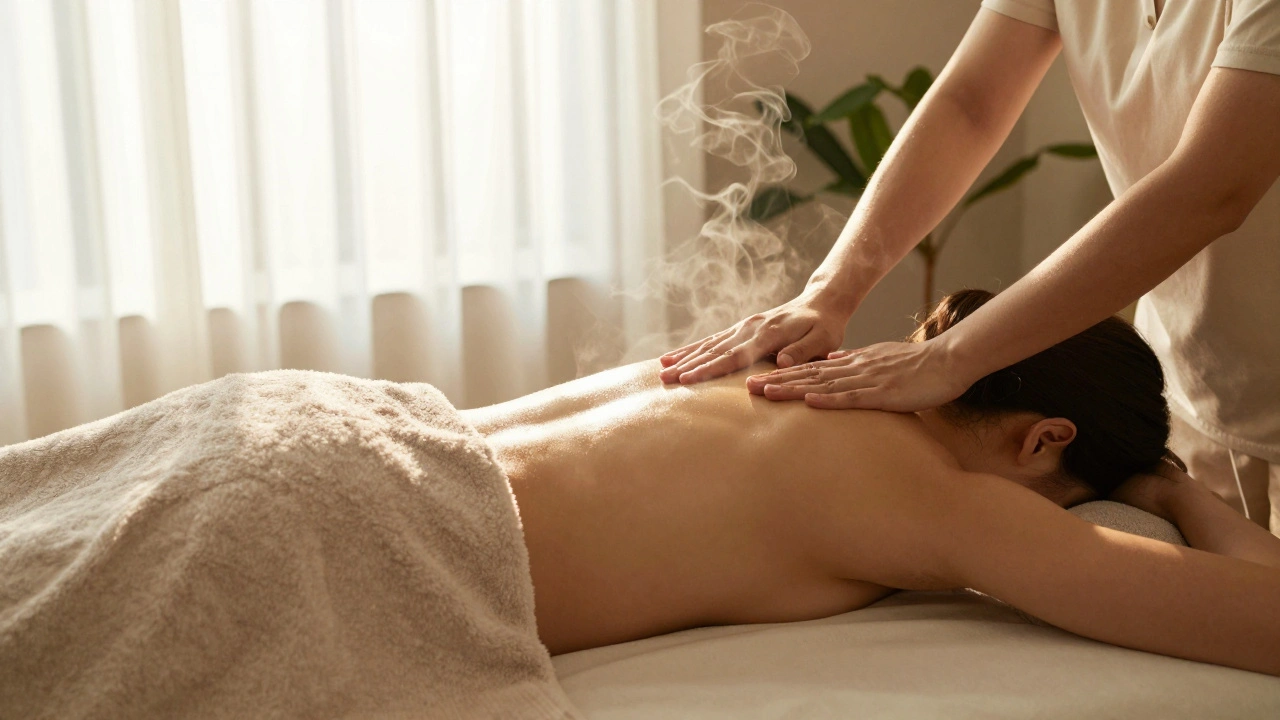
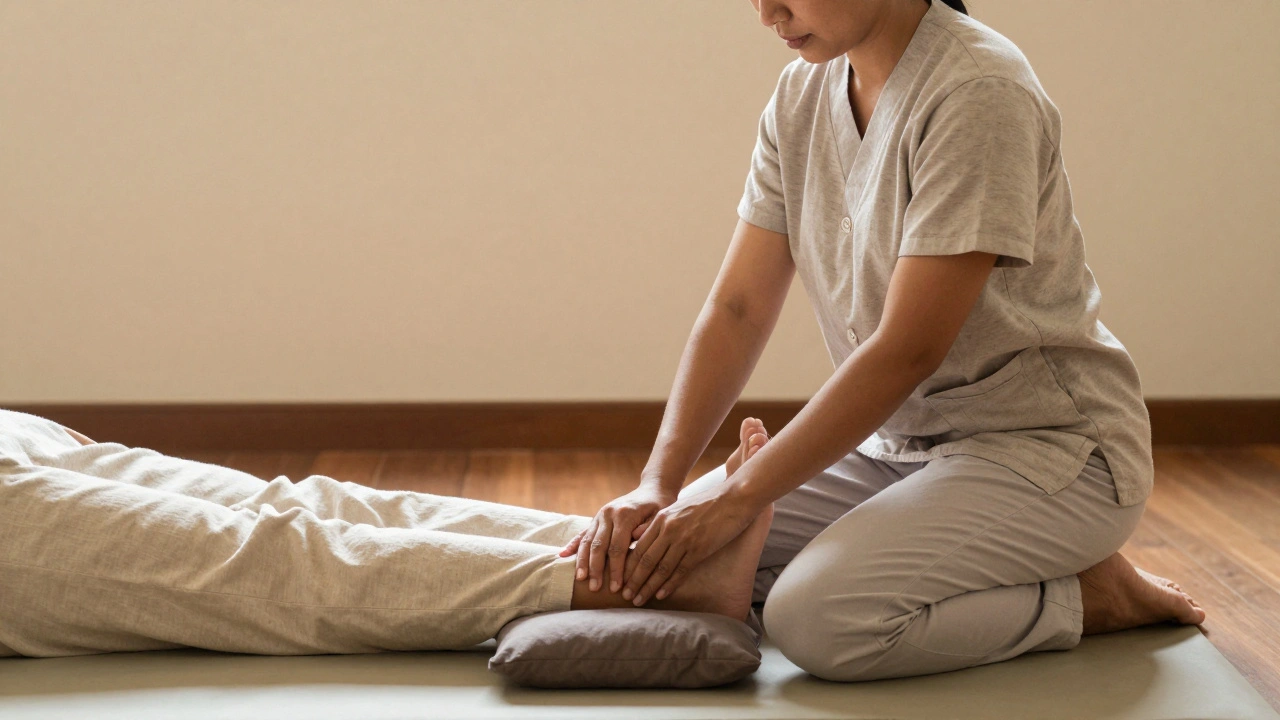
Devin Tankersley
October 15, 2025 AT 05:46This article pretends to be a checklist but it's just fluff. The writer oversells the 'revitalization' hype. Who cares about lavender scent? Real therapists don't need marketing gimmicks. If you want results, stop reading marketing copy and book a legit clinic. The guide is a waste of time.
Kristen O.
October 15, 2025 AT 09:06While your sarcasm reflects a lack of appreciation for evidence‑based protocols, it's worth noting that modality differentiation is critical for treatment efficacy 😊. The integration of biomechanics and myofascial release techniques, as outlined, underscores the functional relevance of the guide. Nonetheless, the tone could be refined.
Mathew Thomas
October 16, 2025 AT 09:33Finding the right massage can truly be a simple step toward a calmer mind.
Jennifer bomabebe
October 23, 2025 AT 08:13In the contemporary pursuit of holistic well‑being, the selection of an appropriate therapeutic massage bears considerable significance, particularly within urban milieus where stressors are abundant. The author of the guide endeavors to provide a systematic approach, however, certain methodological nuances warrant further elaboration, especially concerning credential verification. Firstly, the emphasis on licensing through the Australian Association of Massage Therapists serves as a commendable benchmark, yet a comparative analysis with analogous bodies in other jurisdictions would enhance universal applicability. Secondly, the discussion of sensory adjuncts such as aromatherapy, whilst appealing, should be accompanied by empirical references to their psychophysiological impact, to avoid anecdotal speculation. Moreover, the table delineating pressure levels and benefits is well‑structured, nevertheless, the inclusion of contraindications for each modality would fortify client safety. Clients are advised to scrutinize hygiene protocols, a point which the guide rightly highlights, though the articulation could benefit from explicit mention of disposable linens and sterilisation standards. It is also prudent to consider the therapist’s communication style; a practitioner who articulates treatment goals with clarity often yields superior outcomes. From a cultural perspective, the integration of indigenous techniques, such as Thai massage, reflects a commendable appreciation for diverse healing traditions, albeit the guide could explore their historical context in greater depth. The pricing section, while informative, may inadvertently suggest a homogenous market, whereas in practice, fee structures fluctuate based on therapist experience, studio ambience, and geographic location. In addition, providing a sample post‑session care routine would empower clients to sustain the benefits accrued during the session. The recommendation of trial sessions is particularly insightful, as it mitigates the risk of mismatched expectations, a factor often overlooked in commercial settings. Nonetheless, the guide's reliance on generic platforms such as Google Maps for review aggregation could be supplemented with professional accreditation sites to ensure authenticity of testimonials. Future revisions might also address the evolving landscape of tele‑massage consultations, a burgeoning field that warrants methodological consideration. Overall, the composition demonstrates a diligent effort to amalgamate practical advice with educational content, thereby serving as a useful preliminary resource for prospective clients. Readers, however, should remain discerning, cross‑referencing the provided information with personal health considerations and professional medical counsel where appropriate. In sum, the guide stands as a commendable starting point, yet its efficacy will be ultimately determined by the individualized application of its recommendations, a nuance that cannot be overstated.
Heather Conover
November 1, 2025 AT 13:26One must recognize that true therapeutic efficacy arises from nuanced practitioner skill rather than checklist marketing.